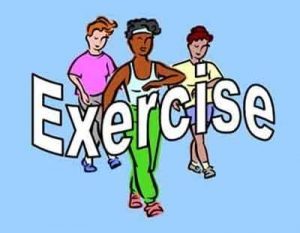- Home
- Editorial
- News
- Practice Guidelines
- Anesthesiology Guidelines
- Cancer Guidelines
- Cardiac Sciences Guidelines
- Critical Care Guidelines
- Dentistry Guidelines
- Dermatology Guidelines
- Diabetes and Endo Guidelines
- Diagnostics Guidelines
- ENT Guidelines
- Featured Practice Guidelines
- Gastroenterology Guidelines
- Geriatrics Guidelines
- Medicine Guidelines
- Nephrology Guidelines
- Neurosciences Guidelines
- Obs and Gynae Guidelines
- Ophthalmology Guidelines
- Orthopaedics Guidelines
- Paediatrics Guidelines
- Psychiatry Guidelines
- Pulmonology Guidelines
- Radiology Guidelines
- Surgery Guidelines
- Urology Guidelines
Work it out: Exercise helps fight depression in Elderly

The benefits of exercise are widely known but kinesiologists at McMaster University have for the first time found that physical activity may help fight depression in seniors by stimulating muscle-generated mood boosters.
The findings, published in the American Journal of Physiology-Cell Physiology, reveal that the underlying mechanisms which make us feel good when we exercise persist into old age and highlight the importance of staying active.
"A previous study demonstrated these mechanisms in healthy young adults, however, it was unknown whether the muscle deterioration which accompanies aging would preclude older adults from achieving similar exercise-induced benefits," explains David Allison, lead author on the study and a postdoctoral fellow in McMaster's Department of Kinesiology.
"This could have important implications concerning the use of exercise as a treatment or a preventative strategy for depression in seniors," he says.
Little is known about the relationship between skeletal muscle and mental health, or how exercise impacts this relationship.
Earlier research has shown that physical activity may help to 'turn on' genes within skeletal muscle which can then influence the key metabolic pathways that ultimately promote mood-enhancing chemicals, such as serotonin, within the brain.
Muscle loss is a common problem in the elderly which may restrict that pathway and therefore increase the risk for depression, says Allison.
For the study, a group of healthy men, aged 65 and over, followed a 12-week protocol of high-intensity interval training (HIIT) on a stationary bike once a week combined with bi-weekly strength training sessions.
Researchers analyzed blood samples and changes to muscle and determined that three months of exercise was enough to enhance gene expression within the skeletal muscle.
"Even individuals who are already metabolically healthy -- with good weight, good blood pressure and blood sugar levels -- need to prioritize regular physical activity to maintain or improve upon their mental health," says Allison. "We have shown such benefits are still achievable in old age and further emphasize the importance of maintaining an active lifestyle."
In the future, researchers hope to explore the relationship between mental health and exercise among the clinically depressed to see if similar biochemical changes can be achieved.

Disclaimer: This site is primarily intended for healthcare professionals. Any content/information on this website does not replace the advice of medical and/or health professionals and should not be construed as medical/diagnostic advice/endorsement or prescription. Use of this site is subject to our terms of use, privacy policy, advertisement policy. © 2020 Minerva Medical Treatment Pvt Ltd